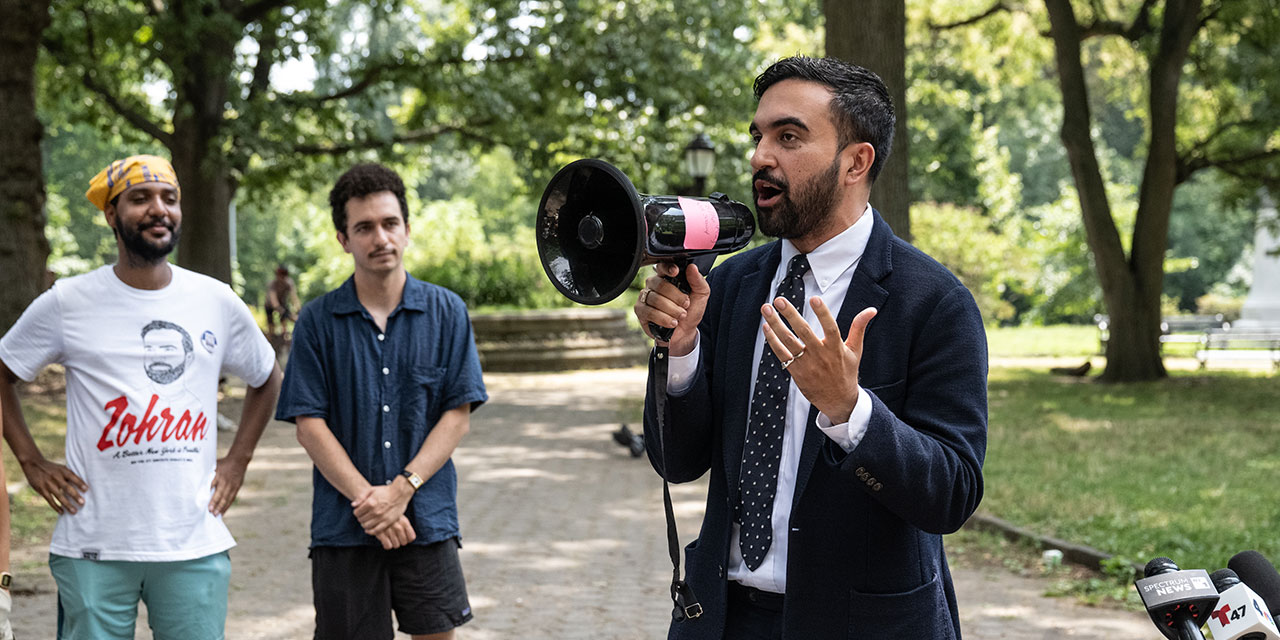
Zohran Mamdani’s marquis campaign promise is a four-year rent freeze for New York City’s 1 million rent-regulated apartments. His promise has drawn substantial criticism on pragmatic grounds, with opponents arguing that a multiyear freeze would harm both the physical condition of rent-stabilized buildings and the housing market more broadly.
But the proposal deserves criticism on legal grounds as well. A court could overturn a rent freeze—indeed, likely should, based on a reasonable reading of the law. That fact significantly undermines the rent freeze, the foundation of Mamdani’s “affordability agenda.”
Finally, a reason to check your email.
Sign up for our free newsletter today.
Under New York law, the mayor has no power to regulate rents. Legal authority over rent adjustments is vested in the city’s Rent Guidelines Board (RGB), an independent administrative body set up under the Rent Stabilization Law. The board consists of nine members, all appointed by the mayor, who is required to name two members to represent tenants’ interests and two members to represent landlords’ interests. The remaining five members are charged with representing the public’s best interest. With the exception of the chair of the board, whom the mayor can remove at any time, the members serve for fixed terms.
While board members may, in general, share the outlook of the mayor who appointed them, the law—not a mayor’s campaign promise—governs their decision-making. The law requires that the RGB consider, on an annual basis, whether regulated rents shall be “adjusted.” In doing so, the RGB must examine a series of objective factors: the costs of real-estate taxes and sewer and water charges; landlords’ “operating and maintenance costs”; vacancy rates; current and projected “cost of living indices;” and “other data as may be available” to the board.
Administrative boards like the RGB enjoy discretion over matters entrusted to them. But they cannot simply ignore the criteria that are supposed to govern their decisions. Board members must also consider their specific roles on the RGB as either tenant advocates, landlord advocates, or “public members.” Critically, all members must weigh and consider the data and other information before them, as set forth in the law, and their decisions must be justified by this evidence.
Mamdani’s rent-freeze pledge ignores this fundamental legal framework. He promises that, if he is elected mayor, the independent RGB will reach a predetermined outcome before reviewing, or even receiving, evidence. Further, he promises a four-year freeze, though the RGB is legally obliged to review market conditions annually. Mamdani is guaranteeing, in effect, to fix the outcome of RGB proceedings for his entire term, regardless of whether the data justify that outcome.
If the RGB issues decisions contrary to the evidence, or based on ideology, an aggrieved party would have grounds to challenge its actions. State law allows any person harmed by the decision of an administrative board to commence a proceeding for judicial review of the decision, known as an Article 78 special proceeding. Article 78 proceedings allow the aggrieved party to demonstrate that, in reaching its decision, a board violated the governing law or failed to consider and apply the evidence in the record in support of its decision. If, for example, a landlord could demonstrate that the RGB ignored evidence of increased operating costs or refused to consider one of the criteria set forth in the Rent Stabilization Law, a court could overturn the board’s decision in favor of a rent freeze.
Mamdani has actually undermined his own cause by making his rent-freeze campaign promise explicit. He has pledged to appoint board members who agree that rents should not increase for four years. But board members are not permitted to make such overt or implied promises.
The Court of Appeals, New York State’s highest court, has made clear that members of an administrative board must act in a fair and impartial manner, without bias or prejudgment. “It is beyond dispute that an impartial decision maker is a core guarantee of due process, fully applicable to adjudicatory proceedings before administrative agencies,” the Court wrote in 1616 Second Ave. Restaurant, Inc. v. New York State Liquor Authority.
Just as a judge cannot render a verdict until he has heard all the evidence, members of the RGB cannot suggest that they would vote for a rent freeze before they have heard and weighed the relevant evidence. The Court of Appeals emphasized, in the same case cited above, “that public statements that indicate prejudgment are especially problematic.” Board members who have made such statements would be required to recuse themselves from voting on the subject matter of the statements. If the RGB fulfills Mamdani’s campaign pledge, the board’s decision will be ripe for reversal as the fruit of a biased process aimed at achieving a politically favored outcome.
The RGB has decided to “freeze” rents just three times in its 57-year history—all under the Bill de Blasio administration. Even then, two of these “freezes” applied only to one-year leases and allowed 2 percent increases for two-year leases. Mamdani has staked his mayoralty on a promise to enact rent freezes for an unprecedented four consecutive years.
“Freeze the Rent” may have won Mamdani the Democratic nomination, but it could also sink his agenda if he wins in November. What he has said can and will be used against him in a court of law.
Photo by Stephanie Keith/Getty Images
City Journal is a publication of the Manhattan Institute for Policy Research (MI), a leading free-market think tank. Are you interested in supporting the magazine? As a 501(c)(3) nonprofit, donations in support of MI and City Journal are fully tax-deductible as provided by law (EIN #13-2912529).
Source link















